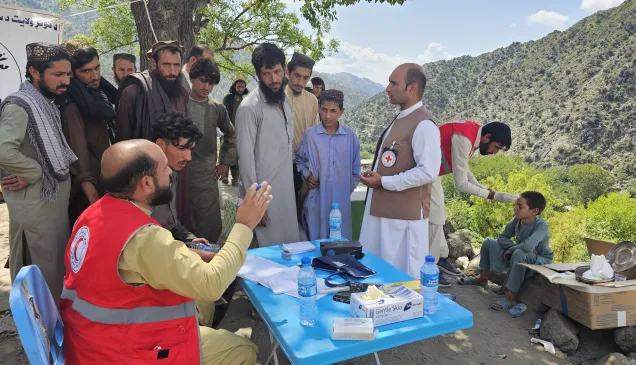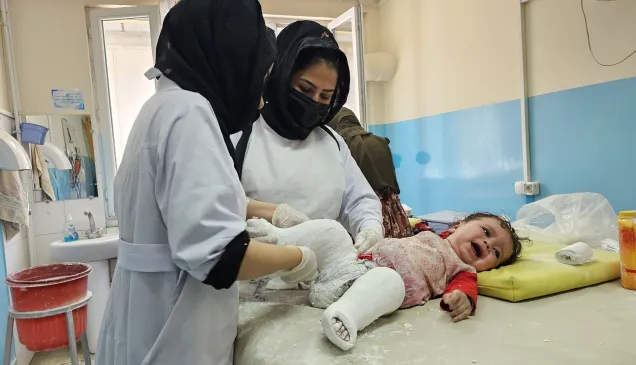This is Nessar, he is 22, from Lashkar Gah. He makes a living riding his tuk tuk, taking people around the city.
Afghanistan: A young man on the road to a new found life
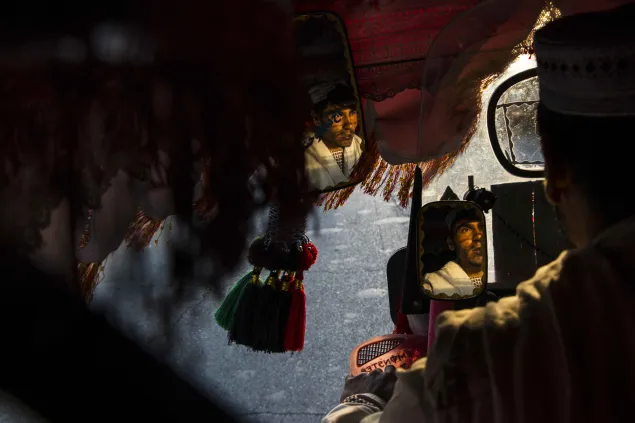
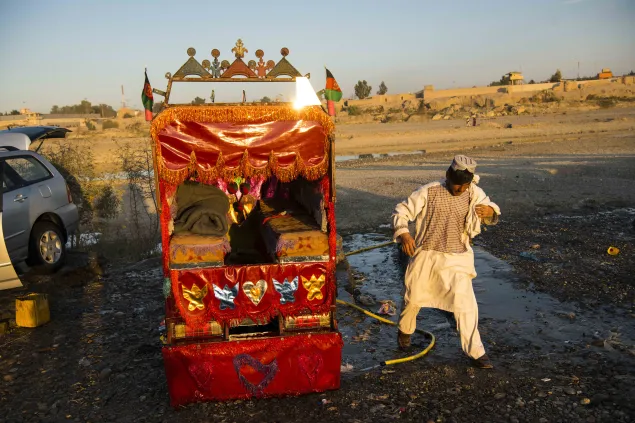
You can say he now lives an ordinary life, but it wasn't always like this.
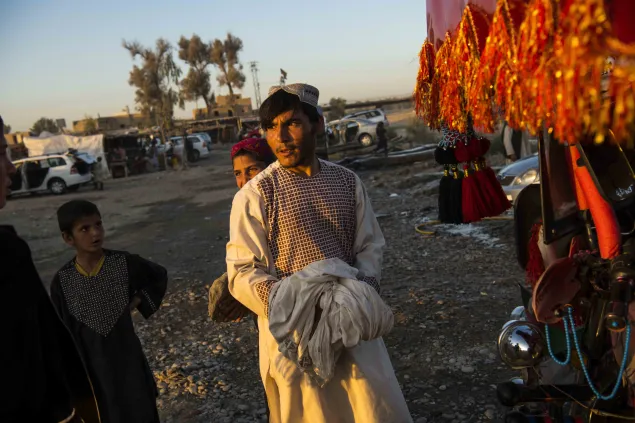
“We were traveling from Babaji to Lashkar Gah when we drove over a mine," Nessar explained. 3 years ago, the young man woke up at the emergency hospital in shock after discovering he did not have his legs. “A few days later, I just accepted I was disabled."
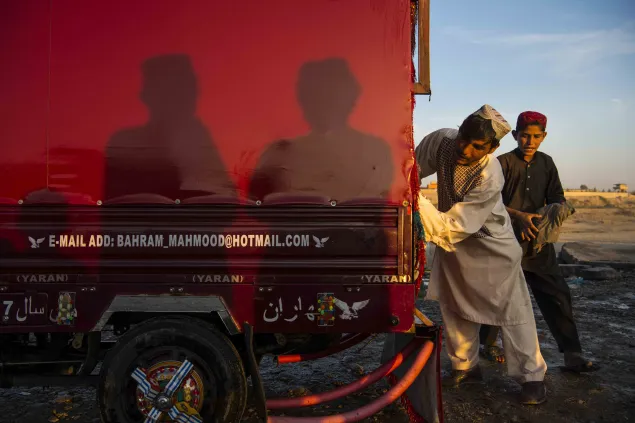
The patient next to him, a policeman, told him about the ICRC and how they provide help for amputees like him.
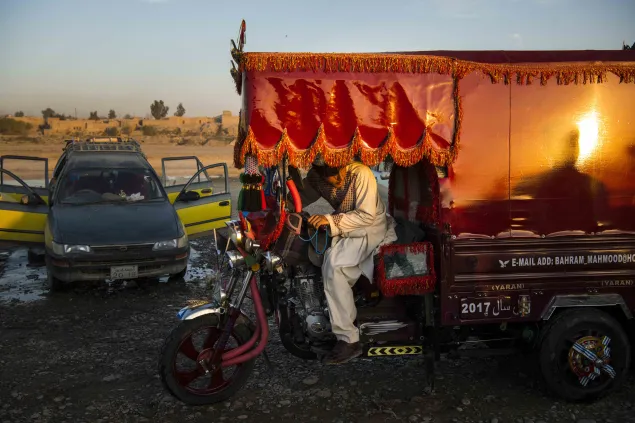
Once Nessar left the hospital, he visited the ICRC Physical Rehabilitation centre and received prosthesis. It was the beginning of his new life.
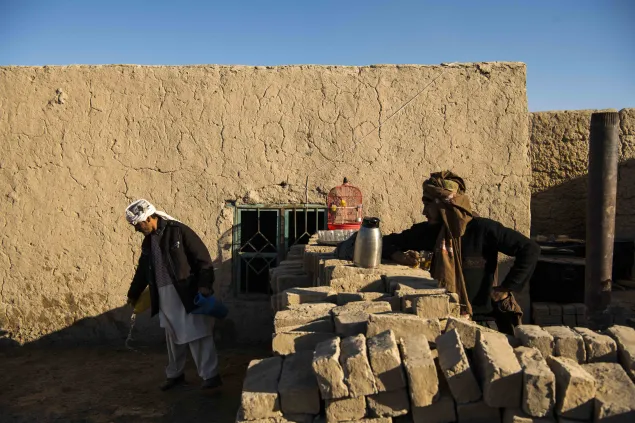
Every morning, Nessar starts his day with prayer at 5 am and then helps his mother with her medications before going to work.
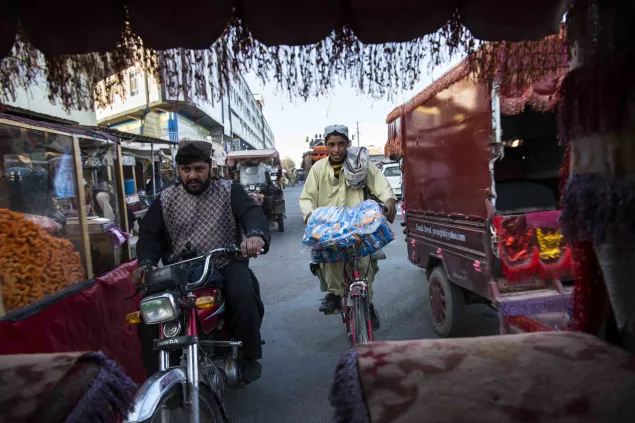
Some of his customers ask what happened to him. When he recounts his story, no one is surprised. Mine-related injuries are very frequent as a result of the country’s decades of war.
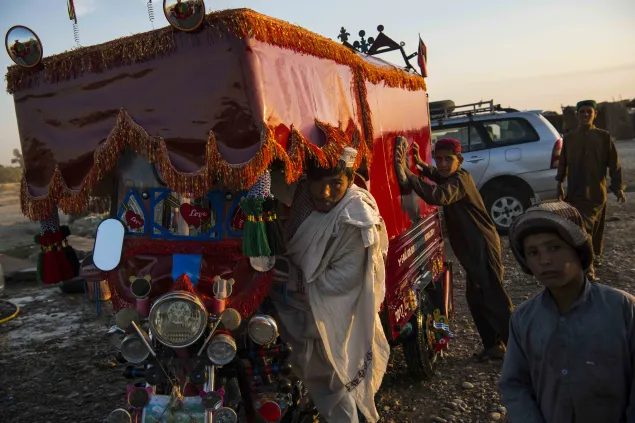
Today, Nessar is able to provide for his eight brothers and eight sisters again. He is determined to build a better life for his family and himself.
More than one million people in Afghanistan have some form of disability. Four decades of war and its aftermath have left the country with one of the highest rates of disability in the world. Remnants of war and lack of access to primary health-care have marred the chances of normalcy for thousands of Afghans.
People with physical disabilities often lose their mobility and with it their self-esteem as useful members of their communities. They feel and often are discriminated against. For 30 years, the ICRC has been committed to providing physical rehabilitation and addressing the needs of the Afghan people, enabling them to regain their mobility and reintegrate into communities through additional support of social programmes.
Despite this unrelenting reality, Nessar and thousands of others stand up on their feet again and rebuild their future.

